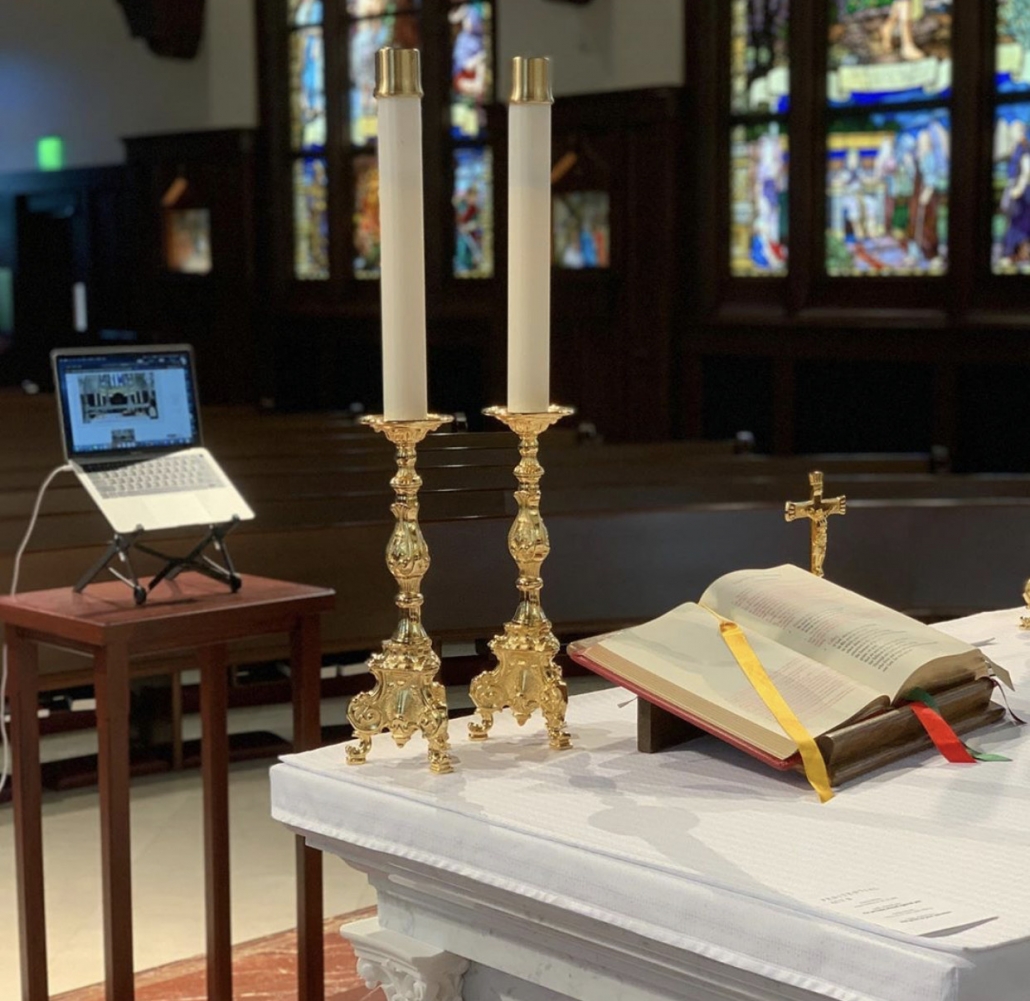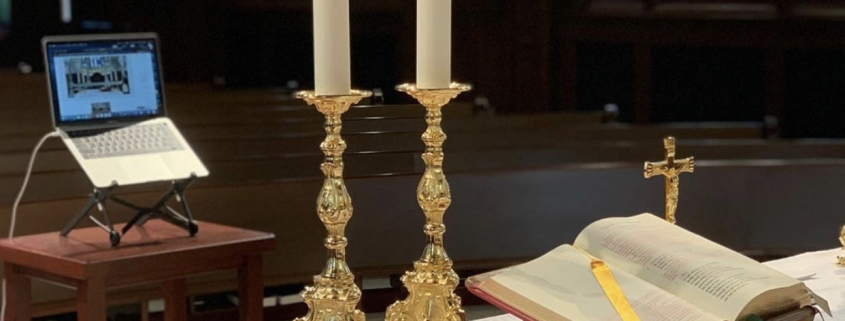USC community celebrates religious holidays remotely

With the coronavirus bringing most religious gatherings to a halt, religious groups at USC have found ways to adapt to the pandemic. Students and staff from USC Hillel, as well as Our Savior Parish and USC Caruso Catholic Center, tailored their celebrations for Passover and Easter this week by providing more virtual activities and spaces for community members to come together online.
Since the Archdiocese of Los Angeles announced the suspension of all Masses starting March 17, Our Savior Parish suspended daily and Sunday Masses until further notice. For Holy Week, which took place April 9 through 12, Our Savior Parish live-streamed Mass via Facebook Live and celebrated Easter Sunday Mass on Zoom.
“It’s definitely hard not to be able to be there in person and be with the community especially during this very sacred time, but I think that it’s really awesome that we’ve been able to continue to foster a sense of community and celebrate the important holidays in our tradition,” said Katie Pavy, a senior majoring in global health.
Rosie Shawver, director of campus ministry at the Catholic Center, said the center has had to modify three days of Holy Week typically celebrated with a special mass or service: Holy Thursday, Good Friday and Saturday’s Easter Vigil, which extends into Easter Sunday. While the Easter Vigil normally sees those who have desired to become Catholic become fully initiated into the church by receiving all the required sacraments including baptism, confirmation and the Eucharist, these traditions have been suspended due to coronavirus precautions, Shawver said.
Additionally, Shawver said the Rite of Christian Initiation for Adults has been postponed with no further plans for the program.
However, Shawver said virtual masses have been going well for those who attend Mass at Our Savior. According to Shawver, the Revs. Richard Sunwoo and Joe Kim have been streaming Masses from chapels in their respective homes, with some members typing in prayers in the chat room during Masses on Zoom. Additionally, the Catholic Center has utilized Be.Live, another live streaming service, through Facebook to connect, including bringing local musical performers to be featured in mass, Shawver said.
“What was cool about [the Masses] was that we were able to bring in different students from around the country and different musicians from around L.A. to come in,” Shawver said. “So it was cool because we were able to bring the community together.”
Tritney Nguyen, a senior majoring in human biology who is also a member of the Catholic Center community, said it has been a “whole different ballgame” to be at home with her family, since she has spent the last three Easter Sundays on campus. For Holy Week, she and her family have been following the masses live-streamed by their local church in Georgia, setting up chairs in their living room and getting dressed to participate virtually.
“It’s great to be with my family, but it’s not the same college environment where everyone’s young and has so much energy to do everything,” Nguyen said. “It’s a change, but you know, I’m trying to just channel that energy and other things I want to do to kind of have similar experiences at home.”

Similarly, Dave Cohn, the executive director for Hillel, has found it interesting to celebrate Passover in a remote digital environment. Cohn said Passover is a deeply personal family experience, especially since the Seder — the celebratory dinner at the start of Passover — is the most widely observed ritual in Judaism, with the highest participation among Jewish people.
“When we’re in our normal routine, Hillel places an indispensable role of providing that experience in our campus home with a large Seder meal hosted by Hillel with hundreds of students in attendance,” Cohn said. “Those things we would normally provide for students, those aspects in our remote digital environment, they don’t ring true in the same way, and our approach from the outset was to honor that.”
Because the majority of students from Hillel are celebrating Passover with their families, Cohn said he and the rest of the Hillel staff did not want to supplant those experiences. Instead, Hillel staff has provided students with resources from a wide spectrum of partner organizations, as well as a few of its own.
“We wanted to make sure that students who were looking for ideas of how to observe Passover at home had a gateway to those things,” Cohn said.
Hillel staff has created a cheat sheet for placing a simple Seder meal together at home — especially if students are more limited on supplies — and a cookbook with family recipes. Additionally, Cohn said Hillel has offered unofficial “matchmaking” for students who are unable to have Seder with their families so that they could be connected to other families that are part of the Jewish community at USC. Hillel was able to make several matches.
“We didn’t want to assume just because Seder is so widely observed that everyone had a place to ‘go,’” Cohn said.
For Clara Miller, a junior majoring in design, her family usually invites many people over for the two Seder meals on the first two nights of Passover. However, due to the pandemic, she and her family decided to connect with other families via Zoom, which she said was a little chaotic due to connectivity issues.
“It was just a little weird,” Miller said. “We tried to position the computer in a way they could see all of the table, and my mom was yelling so that they could hear, [and] they wouldn’t hear and sometimes they disconnected. So it was a little bit chaotic and then trying to sing together, it was a total mess.”
However, Miller said that Passover has been a relief in itself during the pandemic. Despite having to transition to the online class format and being on lockdown due to coronavirus restrictions, Miller said she is grateful to be able to spend this year’s Passover with her family.
“Passover has been one of the least stressful things because Passover is about being with your family, and I haven’t been with my family the last two Passovers,” Miller said. “Out of everything, Passover is the kind of a thing where I’m like, ‘Oh, this is what we used to do when I was home.’”

